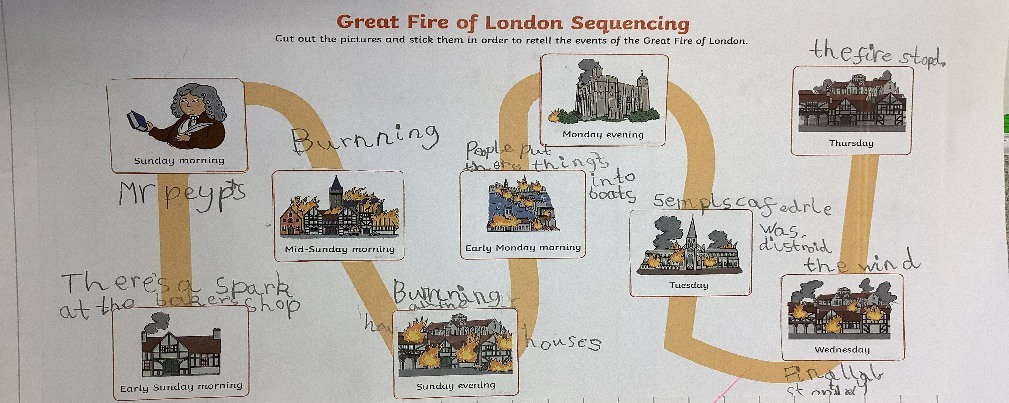History

Intent:
At Pyrcroft Grange Primary School, our philosophy is that engaging and dynamic history education encourages pupils to delve deeper into historical events and adopt the mindset of historians.
Through a coherent, sequenced curriculum, pupils are given the chance to explore and analyse historical events, grasp the concept of time, gain a comprehensive understanding of both British and global history, and effectively communicate their historical knowledge.
We aim to cultivate the following key traits in our pupils to nurture their development as historians:
- A profound knowledge and understanding of individuals, events, and contexts from diverse historical periods, emphasizing significant milestones in Britain's history.
- An introduction to the concept of chronology, foundational for developing a sense of historical periods, alongside essential concepts like change and causation.
- The capacity to critically assess history and articulate thoughts confidently to various audiences.
- The skill to support, critique, and challenge personal and others’ perspectives using evidence from multiple historical sources.
- The ability to engage in reflection, debate, discussion, and evaluation of the past, through crafting and refining questions and investigative approaches.
- A deep respect for historical evidence and the competence to employ it critically in their learning journey.
- An enthusiasm for challenging tasks, including the pursuit of high-quality research across numerous historical themes.
- An evolving curiosity about the past and the diverse interpretations of historical events.
Implementation:
Our teachers are equipped to design an invigorating curriculum that poses significant questions, sparking our pupils’ zeal for history. This is supported by school membership to the Historical Association and Hamilton Trust planning and resources. The planning framework includes:
- A chronological curriculum that supports pupils to see and understand historical events in time order and to build an understanding of how they link together.
- In classrooms there are visible historical timelines to support pupils with their understanding of where historical events lie in comparison to others.
- A structured series of lessons for each topic, ensuring progression and depth, building upon previously acquired knowledge and skills.
- Adopting an adaptive teaching approach, to ensure concepts are broken down into manageable steps and that pupils’ understanding is scaffolded.
- Integration with other subjects, especially utilizing history to inspire extended writing tasks.
- Setting high expectations for all pupils, incorporating challenge questions for applying learning in a philosophical/open-ended manner.
- Organizing educational trips and inviting specialists to enrich the learning experience.
Impact:
Our History Curriculum is of exceptional quality, meticulously planned to show progression. It will evidence
- Pupils from diverse backgrounds will gain an understanding of their history, their role in Britain, and the broader world.
- Pupils will develop critical and analytical thinking skills, making well-informed and balanced judgments based on historical knowledge.
- Pupils will become more conscious of how historical events have influenced the modern world.
- They will gain a deeper understanding of history at both a local and granular level.
- Pupils will enhance their inquiry skills, pursuing personal interests within a topic and fostering further questioning.
- Pupils will remember previous lessons and actively draw connections between past and present learning.
- Pupils will be able to chronologically organize periods of civilization and infer about those civilizations based on their time periods.
- Employing the knowledge organizer as an assessment tool and to trigger prior knowledge.
- An endpoint assessment for each learning area per year group, showcasing the progression of knowledge and skills. This includes close engagement with local historical sites, such as visits from the fire service linked to the Great Fire of London, Viking Day, and interactions with Chertsey Museum, to enrich students' understanding and appreciation of history.
- The use of endpoint assessments, pupil discussions and in class observations, support teachers to assess if pupils have met the expected standards for the planned unit of history. Pupil outcomes are recorded on Arbor.
- Pupil discussions about their learning, demonstrating an understanding of key knowledge and interconnected links.



